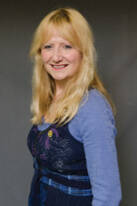The BSS-R was developed by Hollins Martin and Martin in 2014
The BSS-R is a 10-item valid, reliable, quick and easy self-complete measure of women’s birth satisfaction post-delivery. The BSS-R is a multi-dimensional questionnaire, which assesses three distinct, but related dimensions: Stress experienced during childbearing / Women’s attributes / Quality of care.
These three sub-scales can be independently used and/or a BSS-R total score generated (0-4 for each of the 10-items = Top total score of 40). Higher BSS-R scores (sub-scales and total score) indicates comparatively greater birth satisfaction. The BSS-R has become a popular measure for clinical and research use, due to its ease of administration and scoring, excellent measurement properties, validity and reliability, and evidence-informed theoretical framework. The BSS-R has been validated for use in English speaking countries other than the UK, e.g., the United States (US) and Australia. Systematic evaluation of the US version has demonstrated equivalence to the original version of the BSS-R, which originated in the UK. The BSS-R has also been translated and validated in non-English languages, e.g., Greek, Spanish, Italian, Hebrew and Turkish, with many more translations and validation projects currently in progress.
The BSS-R was selected in 2016
The BSS-R was selected in 2016, following world-leading expert review, by the International Consortium for Health Outcomes Measurement (ICHOM), as the tool of choice for assessing birth experience. The ICHOM recommend the BSS-R for global use, within their standard set of outcomes measures for Pregnancy and Childbirth. Prof Caroline J Hollins Martin and Prof Colin R Martin who initiated the concept and development of the BSS-R© continue to work with international teams to translate, advise and validate population-specific versions of the 10-item BSS-R.
This allows clinical teams world-wide to produce a context specific robust tool for use in individualised projects. The purpose of developing country and language specific versions of the 10-item BSS-R is to collect data using the tool in specific populations to assess and improve quality of intra-natal care provision. If you would like to use the BSS-R, please contact us.
The Birth Satisfaction Consortium
Prof Caroline J Hollins Martin and Professor Colin R Martin have created the Birth Satisfaction Consortium, which is a collaboration of clinicians and researchers who work in the field of maternity care research and clinical provision of care during labour and childbirth. Our goal is to advance the science and practice of providing maternity care during labour in order to improve the lives of women and partners affected by childbirth.
To achieve our goals, the Birth Satisfaction Consortium aims to:
(1) Translate and validate the BSS-R for use within relevant language specific populations, and make these versions available for use.
(2) Gather data from around the world about women’s experiences and satisfaction with labour and childbirth, with the ultimate goal of improving maternity care provision.
(3) Identify risk and protective factors associated with experiencing a good or bad labour and childbirth experience in various cultural contexts.
(4) Advise on preventative strategies to minimise impact of psychological trauma during labour and birth in various cultural contexts.
(5) Disseminate and communicate our discoveries to maternity care professionals and the general public.
Core Birth Satisfaction Consortium members:
| Title & Name | Institution | Department | |
| Prof Caroline J. Hollins Martin | Edinburgh Napier University | School of Health & Social Care | c.hollinsmartin@napier.ac.uk |
| Prof Colin R. Martin | University of Suffolk | School of Health and Sports Sciences | colinmartin.bssr@proton.me |
| Assistant Professor Susan E. Fleming | Seattle University | College of Nursing | fleminsu@seattleu.edu |
| Dr Celestina Barbosa-Leiker | Washington State University Health Sciences Spokane | College of Nursing | celestina@wsu.edu |
| Maja Brekalo | Catholic University of Croatia | Department of Psychology | maja.andelinovic@unicath.hr |
| Dr Ekaterina Burduli | Washington State University | College of Nursing | eburduli@wsu.edu |
| Dr Rafael A. Caparros-Gonzalez | University of Granada (Spain) | Faculty of Health Sciences, Department of Nursing | rcg477@ugr.es |
| Dr Elaine Jefford | Southern Cross University (Australia) | School of Health and Human Sciences (Midwifery) | elaine.jefford@scu.edu.au |
| Associate Professor Nazan Karahan | Health Sciences University (Turkey) | Faculty of Gulhane Health Sciences, Midwifery Department | karahan.nazan@gmail.com |
| Marijana Matijaš | Catholic University of Croatia | Department of Psychology | mmatijas@unicath.hr |
| Associate Professor Forough Mortazavi | Sabzevar University of Medical Sciences | School of Nursing & Midwifery, Department of Midwifery | frmortazavi@yahoo.com |
| Dr Sandra Nakić Radoš | Catholic University of Croatia | Department of Psychology / Associate Professor | snrados@unicath.hr |
| Dr Borja Romero-Gonzalez | University of Granada (Spain) | School of Psychology | borjaromero@ugr.es |
| Dr Antonella Nespoli | University of Milano-Bicocca (Italy) | Department of Medicine and Surgery | antonella.nespoli@unimib.it |
| Colleen Donovan-Batson | Southwest Wisconsin Technical College | Direct Entry Midwifery | cdonovan-batson@swtc.edu |
| Seda Göncü Serhatlıoğlu | Karabuk University | The Faculty of Health Sciences/Midwifery | sedagoncu07@gmail.com |
| Elisabetta Colciago | University of Milano,Bicocca | School of Medicine and Surgery | e.colciago2@campus.unimib.it |
| Professor Shamsa Zafar | Air University (AU) Pakistani Air Force Islamabad Pakistan | Fazaia Medical College / Department of Obstetrics and Gynaecology | shamsazafar@gmail.com |
| Dr Fareeha Tayyab | Air University (AU) Pakistani Air Force Islamabad Pakistan | Fazaia Medical College / Department of Obstetrics and Gynaecology | fareehatayyab@gmail.com |
| Prof Míriam Raquel Diniz Zanetti | Federal University of São Paulo- Universidade Federal de São Paulo UNIFESP Brazil | Department of Human Movement Sciences | miriam.zanetti@unifesp.br |
| Ms Renata Bullio Ferrari | Federal University of São Paulo- Universidade Federal de São Paulo UNIFESP Brazil | Department of Human Movement Sciences | renatabullio@gmail.com |
| Berbel Emmens | MSc, Counselor & Independent Researcher, Netherlands | TrustMotherNature.nl | berbel@emmens.org |
| Assistant Professor in Midwifery Kateřina Ratislavová (PhD) | University of West Bohemia, Czech Republic | Department of Nursing and Midwifery | ratislav@kos.zcu.cz |
| Dr Eva Hendrych Lorenzová (PhD) | University: University of West Bohemia in Pilsen, Czech Republic | Faculty of Health Care Studies | elorenzo@kos.zcu.cz |
| Dr Anikwe Chidebe Christian | Nnamdi Azikwe University Teaching Hospital Nnewi Anambra State, Nigeria | Department of Obstetrics and Gynaecology | drchideanikwechristian@gmail.com |
| Mr Surya Kant Tiwari | Atal Bihari Vajpayee Medical University, Lucknow, Uttar Pradesh, India | Department of Pediatrics Nursing, Yatharth Nursing College & Paramedical Institute | surya.tiwari468@gmail.com |
| Prof Helena Moreira | University of Coimbra | Faculty of Psychology and Educational Sciences | hmoreira@fpce.uc.pt |
| Assistant Professor Aya Tezuka | Kyorin University (Japan) | Faculty of Health Sciences | a-taniguchi@ks.kyorin-u.ac.jp aya-tezuka@umin.ac.jp |
| Prof Juliana Linnette D’Sa | King Saud University, Saudi Arabia | Department of Maternal and Child Health Nursing, College of Nursing | jdsa@ksu.edu.sa dsa.julie@gmail.com |
| Dr Hunor Abrán | University of Pécs, Hungary | Doctoral School of Health Sciences | bclrh3@pte.hu |
| Dr Paulina Pawlicka | University of Gdansk, Poland | Faculty of Social Sciences, Institute of Psychology | paulina.pawlicka@ug.edu.pl |
| Dr Elena Jost | University Hospital of Bonn, Germany | Department of Obstetrics and Prenatal Medicine | elena.jost@ukbonn.de |

Prof Caroline J Hollins Martin
(PhD MPhil BSc RM RGN MBPsS Senior Fellow HEA) has had a long career working in the area of women’s health, with a specific focus upon psychological issues surrounding pregnancy and childbirth. Caroline’s background has encompassed a career in women’s reproductive health that spans 35 years.
The first 11 years of her career were spent working as a fulltime clinical midwife in Ayrshire Central Hospital (Irvine), which is now known as the Ayrshire Maternity Unit (Kilmarnock), and is based in the west of Scotland (UK). The other 24 years of Caroline’s working life has been spent teaching and researching women’s reproductive health within universities. To date, she has worked for the University of the West of Scotland (UWS), University of York, University of Manchester, Glasgow Caledonian University, University of Salford, and Edinburgh Napier University (5 years). Caroline is a Nursing and Midwifery Council (NMC) Registered Midwife and Lecturer/Practice Educator, and also a graduate and post graduate in psychology and Member of the British Psychological Society (MBPsS). Caroline’s research interests lie in social psychology that relates to women’s reproductive health, with earlier work relating to hierarchies within organisations and their effects upon decision-making and providing choice and control to childbearing women. More recently focus has shifted to developing useful tools for maternal health practitioners to use in clinical practice. For example, the Birth Satisfaction Scale-Revised (BSS-R), which has been validated to assess mothers’ perceptions of their birth experience. Other research interests lie in perinatal bereavement, Compassionate Mindfulness Therapy (CMT), and PTSD. To date, Caroline has published 100+ peer reviewed papers, with her publication record available for viewing at:
Worktribe: https://www.napier.ac.uk/people/caroline-hollinsmartin
Research Gate: https://www.researchgate.net/profile/Caroline_Hollins_Martin
Scopus Author ID: 8665735000

Prof Colin R. Martin
Colin R. Martin BSc MSc MBA PhD YCAP FHEA is Visiting Professor of Perinatal Wellbeing at the University of Suffolk (UK).
Beyond the mental health focus of his research, Colin is also trained in analytical biochemistry. As such, Colin has published papers on a broad range of biological substrates of relevance to mental health including the neurotransmitter serotonin, the relationship between amino acid biosynthesis and mood, and the Vitamin B complex. He has published approximately 250 peer-reviewed journal research papers, over 100 book chapters and in excess of 50 books. He has an enduring interest in perinatal mental health and well-being and as part of this interest has developed a number of validated measures for use within perinatal research and clinical practice, including the Perceptions of Care Adjective Check List-Revised (PCACL-R), the Oxford Worries about Labour Scale (OWLS), the Understanding Bereavement Evaluation Tool (UBET), the Professional Issues in Maternal Mental Health Scale (PIMMHS),the Perinatal Mental Health Awareness Scale (PMHA), the Perinatal Illness Perceptions Scale (PIPS), and the Birth Satisfaction Scale-Revised (BSS-R). The Birth Satisfaction Scale-Revised (BSS-R) is an outcome measure now recommended for global use by the International Consortium for Health Outcomes Measurement (ICHOM) in the Pregnancy and Childbirth Standard Set (www.ichom.org/medical-conditions/pregnancy-and-childbirth/), and is also now included as a key measure in the National Maternity Survey (England and Wales).
Colin is a keen book author and editor and has either written or edited 30 books that reflect his diverse academic and clinical interests, and which examine in-depth the interface between mental health and physical health. These outputs include the Handbook of Behavior, Food and Nutrition (2011), Scientific Basis of Healthcare: AIDS and Pregnancy (2012), Perinatal Mental Health: A Clinical Guide (2012), Nanomedicine and the Nervous System (2012), and the major reference works Comprehensive Guide to Autism (2014), Diet and Nutrition in Dementia and Cognitive Decline (2015), Comprehensive Guide to Post-Traumatic Stress Disorder (2016), Metabolism and Pathophysiology of Bariatric Surgery: Nutrition, Procedures, Outcomes and Adverse Effects (2017), Probiotics in Mental Health (2018), Oxidative Stress and Dietary Antioxidants in Neurological Disease (2020), Zika Virus Impact, Diagnosis, Control and Models (2021), Factors Affecting Neurodevelopment: Genetics, Neurology, Behavior and Diet (2021), Diagnosis and Treatment of Spinal Cord Injury (2022), The Neurobiology, Physiology, and Psychology of Pain (2022) and The Handbook of Lifespan Cognitive Behavioral Therapy: Childhood, Adolescence, Pregnancy, Adulthood, and Aging (2023). Professor Martin is particularly interested in all aspects of the relationship between underlying physiological substrates and behavior, particularly in relation to perinatal wellbeing and infant and child development. He is involved in collaborative International research with many European and Non-European countries.
Contact Us
Please dont hesitate to get in touch. For more information on our research and services, drop us an email and speak with us directly.